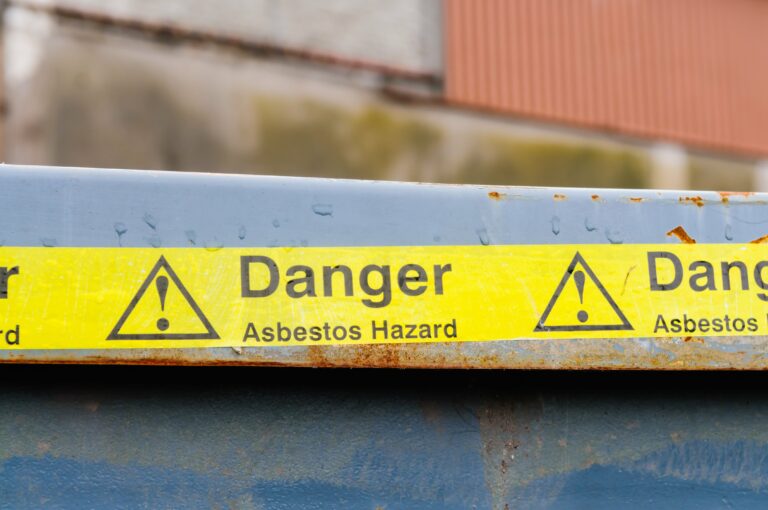BLOG
Ways to create a more LGBTQ-inclusive workplace
Written on 30 June 2021

Despite always retaining a number of core duties, HR is a function that continually evolves with the society in which it exists.
The increasingly liberal outlook on sexuality and gender identity provides perhaps the most prominent example of this. With representing the interests of each individual being arguably HR’s most important role, LGBTQ+ inclusiveness has naturally become a key remit.
But invariably, this comes with a number of challenges. Being part of society’s fabric, LGBTQ+ culture continues to change and evolve by the day, and so it falls to employers to remain fully conscious of these changes.
Quite simply, doing so will allow total inclusiveness to be baked into the culture of the organisation.
With this being a multifaceted area to navigate, here are some of our top tips for creating a more LGBTQ-inclusive workplace.
Pay attention to terminology
Once again, LGBTQ+ culture is an ever-evolving facet of society, and terminology is arguably the most prominent manifestation of this.
As an evermore precise societal consensus on these issues continues to form, so too does the implementation of new common terms, definitions and pronouns.
While some dismiss these developments as arbitrary, it is vital for employers to keep in mind that the wishes of the individual are the most important consideration bar none – especially with the burgeoning relationship between sexuality, gender identity and mental health.
In large part, navigating this will boil down to training. Providing leaders with a comprehensive understanding of the issues surrounding LGBTQ+ culture will allow them to approach situations with a heightened level of compassion and diplomacy.
Not only will this serve to strengthen communication across the organisation (in itself another key consideration for HR), but it’s also bound to have a positive impact on trust, engagement and performance among the workforce.
Related Content
Do you need support?
Speak to us for an honest, no obligation chat on:
0345 226 8393 Lines are open 9am – 5pm
Understand the relevant legislation
Compliance is a high priority when it comes to any issue in the corporate space, but in the case of LGBTQ+ inclusiveness, this is more significant in 2021 than ever before.
But while legislation protecting the interests of LGBTQ+ individuals has progressed exponentially in recent years, employers must first look back more than a decade to the Equality Act 2010.
The Act lays out nine ‘protected characteristics’, of which one is sexual orientation. This makes it unlawful for employers to discriminate against individuals because they:
- Are heterosexual, gay, lesbian or bisexual;
- Are perceived to have a particular sexual orientation (known as discrimination by perception); or
- Are connected to someone who has a particular sexual orientation (known as discrimination by association).
Trans employees are similarly protected under the protected characteristic of ‘gender reassignment’.
The law also prevents harassment and victimisation on the basis of sexual orientation or gender identity, which may include offensive nicknames, inappropriate questions, and excluding LGBTQ+ individuals from conversations or activities.
Again, training and education plays an important role. Managers must understand what constitutes both direct and indirect discrimination and how to apply your policies and procedures.

Revisit your policies
While understanding and respect are key facets for an employer to grasp when it comes to LGBTQ+ inclusiveness, the journey does not end there.
According to Stonewall, more than a third (35%) of LGBT staff have hidden their sexuality at work in fear of discrimination. With that in mind, in order to embed greater equity into the culture of the organisation and make a substantial change, something more tangible is required.
This is where policy and strategic planning will take centre stage, enabling businesses to cultivate a culture of diversity. For instance, in respect to terminology, while it’s one thing to make a conscious effort with this, baking it into policy and procedure is another entirely, and will further safeguard the inclusiveness that the company is aiming to cultivate.
This could be as simple as moving away from traditional “he” or “she” pronouns, and implementing “they” or “them” as standard parlance.
Other such policies may concern areas such as dress code, benefits and talent acquisition procedures. Ironing out systemic inequalities in these areas is likely to provide quick, easy wins, allowing the organisation to swiftly move away from potentially discriminatory practices.
On the strategic planning side of things, similar goals can be achieved by benchmarking against the practices of other modern organisations. New and innovative ideas to cultivate LGBTQ+ inclusiveness in the modern workplace are emerging every day, and with corporations taking note of each others’ initiatives, this innovation will only be bolstered.
Know the boundaries of 'free speech'
Finally, it’s advisable for organisations to bear in mind that there may be some employees who hold gender-critical views who may also attain some protection under discrimination legislation.
Though eradicating discriminatory actions and language is a key factor when it comes to LGBTQ+ inclusion, employers should also make sure that those holding gender-critical views are not discriminated against either.
One recent case has brought this into focus. Maya Forstater, an employee of a global development think tank, was dismissed from her role following a series of tweets in which she rejected the idea of people being able to change their biological sex.
Her beliefs were ultimately deemed by the Employment Appeal Tribunal to be protected under the Equality Act.
In short, the Act qualifies any religious or philosophical belief as a ‘protected characteristic’, providing that:
- It is genuinely held.
- It is a ‘belief’ rather than an opinion or a viewpoint.
- It relates to a substantial aspect of human life and behaviour.
- It attains a certain level of cogency, seriousness, cohesion and importance.
- It is worthy of respect in a democratic society.
The Tribunal will now move on to consider whether she was discriminated because of those beliefs.
One lesson from this decision is that employers do need to be careful when dealing with employees who may hold gender-critical views. Any action taken against them solely because they hold those beliefs will likely be discriminatory.
However, this decision should of course not be interpreted as a directive to encourage discriminatory or hateful speech. Indeed, the High Court Judge stressed that the judgment “does not mean that those with gender-critical beliefs can misgender trans persons with impunity”.
Organisations must ensure that all parties fully understand that discrimination and harassment will not be tolerated. It will be important to watch how the Forstater litigation progresses to see how far protection for manifesting such beliefs might go.
In need of expert advice?
Our Employment Law experts can help you to navigate issues of discrimination efficiently and compliantly, as well as ensure you have all the necessary policies in place to protect your organisation and promote a fair and inclusive workplace, including bullying and harassment, discipline/dismissal and grievance, and equality and diversity.
For more information, call 0345 226 8393 or request your free consultation using the button below.
Sign up for the latest news & insights
Resources
Latest News & Insights

Climate change and OHS | Safeguarding workers in a changing world
BLOG Written by Tim Ketteman on 17 April 2024 Global warming – defined as the sustained alteration of average weather patterns over extended periods –

Enhancing health and safety in schools | 8 strategies for ensuring continuous improvement
Blog Written by Ross Henderson on 17 April 2024 In educational settings, ensuring the safety and wellbeing of students, staff, and visitors is a top

HSE continues to expand its asbestos campaign
BLOG Written by Nick Wilson on 16 April 2024 The dangers of asbestos exposure are well documented. Given these dangers, the Health and Safety Executive

Leveraging the candidate journey to maximise recruitment success
BLOG Written by Danielle Fargnoli on 10 April 2024 The candidate journey is a critical determinant of recruitment success for organisations. Indeed, beyond merely filling

Navigating work-related stress | Strategies for employers
BLOG Written on 2 April 2024 April is Stress Awareness Month, and with stress, depression and anxiety accounting for of all work-related ill-health cases, it’s

Managing employees suspected or convicted of criminal offences
BLOG Written by Susie Lockheart on 20 March 2024 For employers, navigating the delicate balance between an employee’s personal life and their professional responsibilities can

Avoiding discrimination | The impact of a rising State Pension age on PHI schemes
BLOG Written by Lesley Rennie on 28 February 2024 The existing State Pension age in the UK stands at 66 for both men and women,

Exploring recruitment trends in 2024 | What’s changing in the hiring landscape?
BLOG Written by Danielle Fargnoli on 27 February 2024 2024 is well underway and the world of recruitment is evolving at a rapid pace, driven

Flexible working | Acas survey reveals homeworking continues to rise ahead of April changes
BLOG Written by Gerard O’Hare on 22 February 2024 When the pandemic hit, homeworking was seen as a temporary solution. Four years on, it appears









